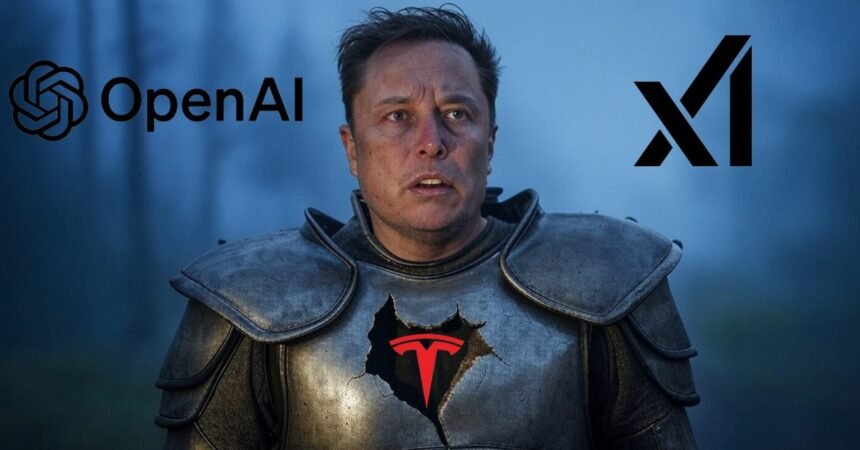Elon Musk’s Legal Troubles: OpenAI Exposes Lies and Sues Musk, Potentially Helping Tesla Shareholders
In a recent turn of events, Elon Musk finds himself entangled in a web of lawsuits and controversies. As he attempts to dismiss a lawsuit from Tesla shareholders accusing him of failing his fiduciary duties, OpenAI, a non-profit organization co-founded by Musk, has now filed a lawsuit against him, shedding light on a series of lies and deceit that could potentially benefit Tesla shareholders.
The saga began last year when Tesla investors sued Musk for breach of fiduciary duty and resource tunneling over the founding of xAI, a private AI company under his control. Musk had originally touted Tesla as a major player in the AI space and emphasized the importance of AI products for the company’s future. However, in early 2024, Musk threatened not to develop AI products at Tesla unless he was granted more control over the company by acquiring additional shares.
Moreover, Musk redirected NVIDIA AI hardware acquired by Tesla to xAI and even poached Tesla employees to work at his private AI company, directly competing with Tesla. This move prompted Tesla shareholders to accuse Musk of breaching his fiduciary duties by creating a rival company that undermines Tesla’s interests. The lawsuit also highlighted similar issues with Musk’s acquisition of Twitter.
In response, Musk and Tesla board members, who are also named as defendants in the lawsuit, have filed to dismiss the claims, citing Tesla’s success and the board’s ability to deliver returns to shareholders. However, the legal battle is far from over, and Tesla shareholders have found an unexpected ally in OpenAI.
Musk’s relationship with OpenAI has been tumultuous, with the Tesla CEO initially co-founding the organization in 2015 to develop artificial general intelligence for the betterment of society. However, Musk resigned from OpenAI in 2018, citing conflicts of interest with Tesla. Subsequently, Musk publicly criticized OpenAI for transitioning to a for-profit model, leading to legal disputes between the two parties.
OpenAI has now countersued Musk, presenting evidence that exposes his misleading statements and questionable actions over the years. The organization has released emails and documents that paint a clearer picture of Musk’s involvement in the AI space, revealing a timeline of events that illustrate his attempts to gain control over AI initiatives.
From proposing a for-profit model for OpenAI in 2017 to founding xAI as a private entity under his control, Musk’s actions have raised concerns about his intentions and motives in the AI sector. The emergence of xAI as a competitor to OpenAI and Tesla has further complicated the situation, leading to legal battles and allegations of deceit.
Overall, the unfolding legal drama involving Musk, Tesla, and OpenAI underscores the complexities and ethical dilemmas surrounding AI development and corporate governance. As the lawsuits progress, the truth behind Musk’s AI endeavors and their implications for Tesla shareholders will undoubtedly come to light, shaping the future of AI innovation and corporate accountability in the tech industry.







